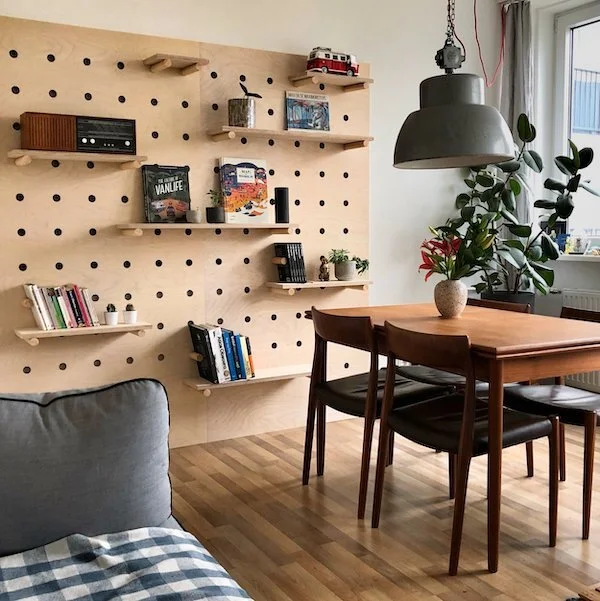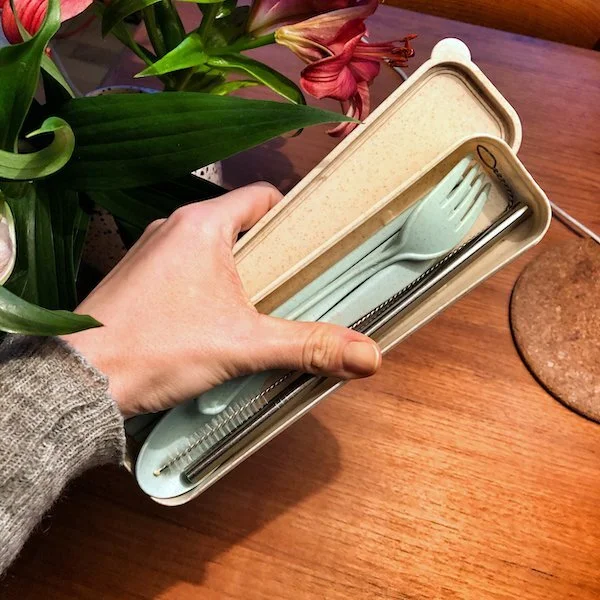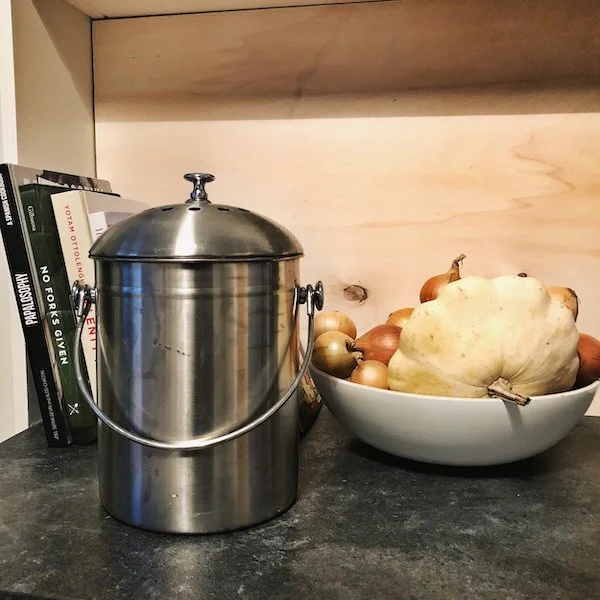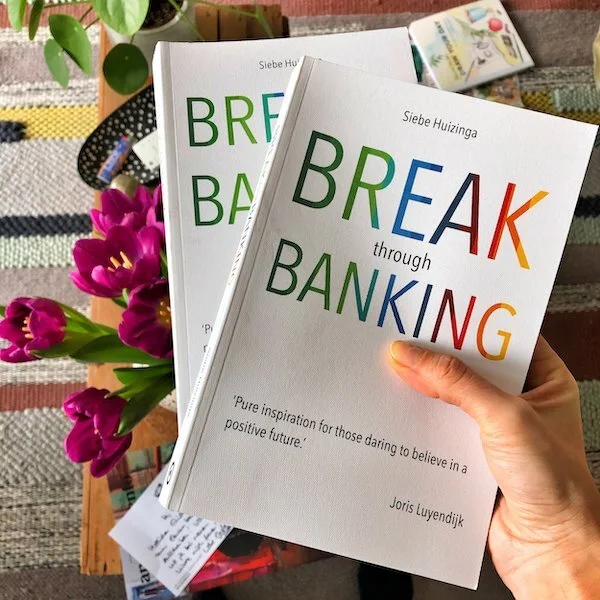6 sustainable life hacks that cost zero effort.
There’s been a lot of talk about sustainability lately. I’ve shared a lot about it on this blog, too. I’ve shared articles about my sustainable habits in the kitchen, the bathroom, and also on the go.
I always say that I like working with so many different clients because I learn a lot in the process. It inspires me to change my behavior, too. (Hello, Jan Bredack, yes, I went vegan after working with you!)
While some changes need some initial thinking, research, commitment, and, indeed, some effort, too, other things are simple to implement and easy to follow through on. And so, here, I’d like to share six tips that are cheap and will make you feel better without requiring much effort at all.
1) Switching Google for Ecosia
I’ve been teaching social media at design universities for a couple of years now. Something that I like to talk to my students about is how different companies make money and how people’s attention, time, content, and effort contribute to the companies’ success.
Only when the user understands the company’s business model and mission are they able to recognize what their role is. Unless you pay for an (online) service, can you be sure how the business monetizes?
As you might have seen, I also give Google Security Workshops on behalf of UpSkillDigital. Google has an incredibly smart business model that protects the user’s data at all times because they want their users to find what they’re looking for as quickly as possible – and sometimes that can happen with the help of ads. Additionally, Google charges for their Google Suite products, which I’ve been happily paying for for years. I like Google, and I’m happy to support them financially, but delivering good search results is no longer something only Google does well, so I’m also happy to use other products.
Take Ecosia. For every 45 searches, they can plant a tree. Just like Google, they make money through ads. Yet, as a non-profit, their main ambition is to plant even more trees. Who wouldn’t support that?
My switch to Ecosia happened in two steps: First, I installed the plugin on my browser, and, second, I replaced my browser icon on my phone with Ecosia’s app. After about two weeks of feeling irritated by the experience, I got used to it and now I hardly ever use Google for search.
2) Get books and audiobooks on Libby, instead of Amazon
Something I’ve been made aware of by Natalie Howard, who I interviewed for Work Trips and Road Trips (and who’s as badass as ever), is that I should download Libby, an app for library ebooks and audiobooks that works globally. Amazing, right?
All it takes is to sign up for a local library card (€10 per year! Hello, Berlin!) and then you can read books and listen to audiobooks “for free.”
What I thought was quite impressive was that I didn’t even need to go to a library to sign up for a library card. I could get one from the comfort of my sofa and still save tons of money.
How it’s possible that more people don’t know about this I don’t know!
3) Getting the Last Swab instead of using throw-away ear swabs
To me, Kickstarter has always been a world of wonder. A special kind of community of creatives, inventors, and generally lots and lots of smart people. It’s where I find out about great books, magazines, and sustainable products!
The Last Swab was one of those projects that blew my mind, where I was like: “How did no one think of this before?!” Even the zero-waste stores still sell throwaway ear swabs. Having used the Last Swab for several months now, I can only say, why would you not use it? Regular swabs are a waste of money and resources.
You only need to rinse the Last Swab after use for a few seconds and let it dry in its case before using it again and again and again. So easy!
4) Adding light reusable cutlery to your backpack
When I decided to be much more consequent about veganism while also needing to save money, I bought an Eco Brotbox Thermobox and started cooking lunch in the morning. I cannot even tell you how much money I’ve been saving doing it, and, while I understand that not everyone can or wants to cook in the morning, I’d say pretty much everyone can bring their cutlery. I don’t think I’m the only one who eats out regularly. Whenever I’m offered throwaway cutlery, I just use my own.
I bought this set from Bright Magazine. It’s light. You can easily clean it. And the case keeps it clean while it’s in your bag. It’s pretty cool.
5) Using a composter in your kitchen
We all produce trash, and, while some of us manage to only fill up a jar a year, most of us probably waste much more (myself included). One change that I have made and that has cut down my landfill waste by a lot is that using a compost bin.
Separating food waste has an incredible impact on the environment, and it is no real extra effort at all.
I have this one that I’m quite happy about.
6) Ditching your bank for bunq
I know having a bank account isn’t too much of an emotional issue. At least it’s not usually. I think what matters to all of us is that our money is saved. That we can access it fast, whenever needed, and ideally at no extra cost (€4,99 to withdraw money from your bank account at an ATM in Germany...completely normal).
So far, so good.
However, what many might not realize is that the money we keep in our bank accounts doesn’t just sit there. Banks make money by investing our money, Up to €100.000. The Central European Bank ensures that, even if the bank goes bankrupt, they’ll pay us back (hence, that’s what a bank license is for and not every bank has their own!).
I believe many of us wouldn’t spend money on what banks might invest their money in if someone asked us what our preference is. Hence, opting in for a sustainable bank account should be a no-brainer.
As you might have already read, I recently signed on bunq as my client to help them grow their community in Germany (read more about how I was running after them for two months here), and so I’ll say: You could go with GLS. You could choose Triodos. You can risk it with Tomorrow (they don’t have their own bank license yet), or you can go with bunq, which is my recommendation.
And so there you go – six things that are quite easy to get used to.
I hope this article inspired you at least a little. Here, and as a closing sentence, is a graphic picturing some of the truths but also what we believe is right. Funny, isn’t it?!




